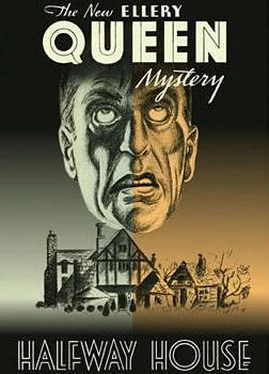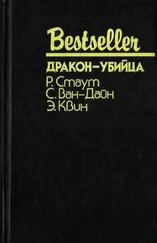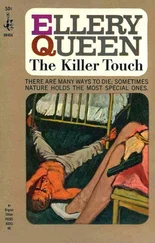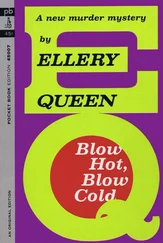“Well,” said Ellery cheerfully, “they don’t want me here, either.”
“What’s up, Sherlock? More deep stuff?”
“I thought you might like to join us. We’re bound for Trenton and an experiment.”
Jones laughed. “Or for hell. It’s all the same to me.”
The sun was a sliver of orange arc over the trees beyond the Delaware when they reached the isolated shack near the Marine Terminal. Ellery, piloting his Duesenberg in the van of the fleet of cars, had led them by a circuitous route on the outskirts of Trenton to Lamberton Road with a caution that indicated his reluctance to attract the attention of some inquisitive reporter roving the city streets.
It had been a sultry day; the leaves of the trees surrounding the shack were motionless. The foliage was so still, stood up so woodenly, that there was something unreal about the scene, as if it were a crude and lifeless imitation of nature. Even the surface of the river, glimpsed beyond the wooded shore, was only a glassy representation of living water. In this solitude the shack stood silently, a poor daub on a brutal landscape.
There was no conversation as Ellery, with a quick glance about, led his unwilling guests into the shack. They were making stern efforts to control themselves, all except Jasper Borden, whose grim eye in that iron face missed nothing. Finch and Bill Angell had some difficulty in maneuvering the old invalid’s wheelchair, which had been carted along, into the house. But finally they were all inside, disposed along the walls, quiet as awed children, the lamp on the table lit against the dimness of dusk and Ellery holding the center of the stage.
For a time he said nothing at all, content to let them steep themselves in the atmosphere of the place. Nothing, apparently, had altered since that eventful night weeks ago except that the area beyond the table was clear, the suits of clothing on the wall-rack were gone, and the odor of death had dissipated. But as they stood and sat there, watching emptiness, it came back distilled by their imaginations until they could almost see the dead flesh of Gimball frozen in its agony on the floor between them.
“Now if you will excuse me,” said Ellery suddenly, striding to the door, “I’ll get the props. As long as we’re staging a drama, we may as well use the technical terms. Please don’t move, anyone.”
He went out quickly, shutting the door behind him; and Bill moved over and set his back against it. The side door was shut. But suddenly, in the deep and awkward silence, it made a noise; and their eyes flew about in something like panic. It was open. The tall willowy figure of Ella Amity stood framed in the doorway.
“Hullo,” she said slowly, looking around. She wore no hat. Her red hair against the light of outdoors was a flaming and untidy nimbus about her hair. “It’s little Ella, folks. May I come in?” She calmly moved forward, closed the door, and stood there with roving, gleaming eyes. After a moment they looked away. The newspaper-woman’s nostrils began to quiver.
“So this is the dump where he got it, eh?” muttered young Jones, staring at the floor beyond the table with his blood-streaked eyes.
“Shut up, Burke,” said Finch irritably. Senator Frueh’s hand paused in its restless stroking of his beard, then resumed with a queer energy. Andrea sat in the armchair Lucy Wilson had occupied on the night of the murder. She was very still and seemed asleep. Bill’s head swiveled from side to side carelessly; there was a febrile flush on his tan cheeks.
The front door opened, and they started again, but it was only Ellery, lugging a large suitcase. He shut the door and turned. “Ella Amity,” he murmured. “Well, well, Ella. Where did you come from?” He seemed in a strange and secret way disturbed.
“A birdie whispered to me today,” the red-headed woman said lightly. “Told me something was going to pop around here. So here I am. I think you’re a heel for not letting me know.”
“How did you get here?”
“Walked. Good for the figure. Don’t worry, darling, I’ve nothing up my sleeve, and my record’s clean. I’ve been out back mooning at the river. Or is it sunning? Well, no matter. What’s going on here?”
“Keep quiet and perhaps you’ll find out.” Ellery went abruptly to the table, slung the suitcase on it. “Bill. I want you to run into town for me on an errand.”
Bill growled: “What—”
But Ellery pounced on him and spoke for some time in an urgent sotto voce . Bill nodded. Then, with a glance about that was oddly savage, Bill shoved the door open and disappeared. Ellery, who seemed especially solicitous about the door, closed it again. Without a word he went back to the table, opened the suitcase, began pulling things out of it. They were realistic stage properties, the actual articles removed by Chief De Jong from the scene of the crime after the initial investigation. As he worked in silence, they heard the sound of a motor outside. The curtains had been drawn at the windows, so they could not see what was going on, but they knew it was Bill Angell leaving for Trenton on his mysterious errand, and they glanced uneasily at one another. Bill seemed to be having difficulty in getting started. His car made a good deal of noise as he raced the engine. The racket was so loud that when Ellery began to speak they had to lean forward to hear. By this time they were grateful for the light of the lamp; darkness had fallen unexpectedly outside.
“There,” said Ellery, depositing the last article in its proper place and returning to the table to stand tall and motionless in the lamp’s radiance. “The stage is set. You will observe that Gimball’s clothes are now back on the wall-rack; that the wrapped package containing his birthday gift of a desk-set to Bill Angell is again on the mantel above the fireplace; that the clean, empty plate is once more on the table near the lamp. The only thing that’s missing is the body of the victim. But that, I feel sure, will be supplied by your own imaginations.”
He flicked one hand over his shoulder. Their eyes went obediently to the spot on the floor indicated, and although it was still a bare patch of fawn rug, it was dreadfully easy to visualize the sprawled body that was no longer lying there.
“Now let me retrace for you,” continued Ellery in a brisk tone, his eyes glittering in the lamplight, “the antecedent events of that day, June the first. A recapitulation will help you understand what happened subsequently. I’ve compiled a timetable which may not be completely accurate, but it gives the relative times involved closely enough to serve our purpose.”
Senator Frueh tried to interrupt, but he had to pause and lick his dry lips first. “Whatever that purpose is. I think this is the most preposterous—”
“The gentleman from Eighty-seventh Street,” said Ellery, “has the floor, Senator. I will be grateful for your absolute silence, as well as the silence of everyone else here. You will have unfettered opportunity later to talk to your hearts’ content.”
“Keep quiet, Simon,” said Jasper Borden out of the side of his mouth.
“Thank you, Mr. Borden.” Ellery waved a finger. “Observe. This is the afternoon of Saturday, June first. It is raining outside — raining hard. The rain is lashing at the windows. There is no one here. It is still light, the lamp is unlit, the package is not on the mantelpiece. The doors are closed.”
Someone drew a tremulous breath. Ellery went on in a swift, merciless voice. “It is five o’clock. Joseph Kent Gimball is in New York, at his office. He has come in from Philadelphia in the old Packard, probably not stopping here on his way in, otherwise he would have left the Packard here and taken his Lincoln to New York. The fact that the Packard was found parked in the side driveway indicates that that was the last car he used.
Читать дальше












